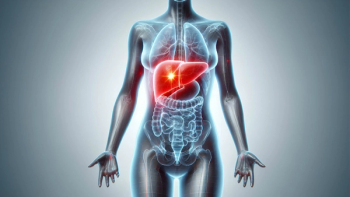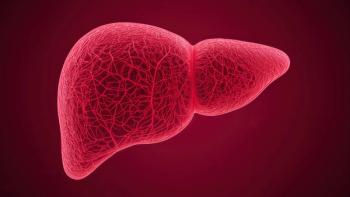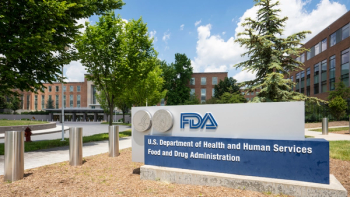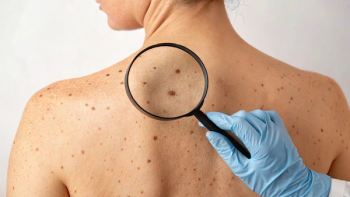
A monthly roundup of business and people news in the pharmaceutical industry.

A monthly roundup of business and people news in the pharmaceutical industry.

Approval is based on results from the Phase III VALIANT trial (NCT05067127), in which Empaveli demonstrated a 68% reduction in proteinuria, stabilization of kidney function, and a significant reduction in C3 deposits in patients with C3 glomerulopathy or primary immune complex membranoproliferative glomerulonephritis.

The transaction brings larsucosterol, an investigational treatment for alcoholic hepatitis, under Bausch Health’s portfolio as the company advances its liver disease research and development efforts.

The FDA’s top vaccine and gene therapy official resigned amid heightened scrutiny over recent drug approval decisions and safety concerns surrounding gene therapies.

Neha Anand, Analyst, Biopharma Intelligence Services, Citeline, explains how positive Phase III results for Emrelis may position AbbVie as a key player in MET-high non-small cell lung cancer, expanding its presence in precision oncology and antibody-drug conjugates.

The newly formed biotech launches with five promising autoimmune candidates, $300 million in funding, and leadership from industry veterans.

The extended review for Elinzanetant is supported by data from the Phase III OASIS 1, 2, and 3 trials, which supported the drug’s efficacy in the treatment of moderate to severe vasomotor symptoms due to menopause.

Under terms of the deal, Bavarian Nordic shareholders will receive an all-cash offer at a premium, with plans to delist the company and accelerate its global vaccine strategy.

The regulatory actions were based on results from the Phase III MATTERHORN trial (NCT04592913), which showed that a perioperative Imfinzi-based regimen, given before and after surgery with chemotherapy, reduced the risk of disease progression, recurrence, or death by 29% in patients with early-stage gastric and gastroesophageal junction.

A global survey of scientists and informaticians reveals growing AI investment across the biopharma value chain, but highlights gaps in data integration, standardization, and infrastructure that threaten to stall progress.

Neha Anand, Analyst, Biopharma Intelligence Services, Citeline, explains how the approval of Emrelis is accelerating investor interest, validating biomarker-driven ADCs, and shaping distinct strategic paths for pharma and biotech in the evolving precision oncology landscape.

Neha Anand, Analyst, Biopharma Intelligence Services, Citeline, highlights Emrelis’ potential to broaden its clinical impact by expanding into other solid tumors with high c-MET overexpression, beyond its current focus on non-small cell lung cancer.

Biotech veteran and Stanford physician-scientist brings 30 years of translational research and regulatory experience to strengthen FDA’s drug review and innovation efforts.

Neha Anand, Analyst, Biopharma Intelligence Services, Citeline, explains how the approval of Emrelis marks a pivotal moment for ADC therapies in oncology, reflecting the FDA’s growing confidence in their safety and efficacy and accelerating the shift toward precision medicine in cancer treatment.

The FDA’s complete response letter cited concerns that the Phase I/II IGNYTE (NCT03767348) trial in advanced melanoma was not an adequate, well-controlled study and that its heterogeneous patient population limited interpretability, preventing approval in its current form.

The MC4R agonist targets rare genetic and hypothalamic obesity, with potential as a combination or maintenance therapy for general obesity alongside GLP-1 agents.

The submission is supported by four Phase III clinical trials, which showed that icotrokinra demonstrated significant skin clearance in patients with moderate to severe plaque psoriasis.

Neha Anand, Analyst, Biopharma Intelligence Services, Citeline, discusses how Emrelis fits into the current antibody-drug conjugate landscape and what distinguishes its approach in biomarker-driven oncology.

Corina Dutcus, SVP, oncology global clinical development lead at Eisai, discusses the potential of the E7386 and lenvatinib combination to address unmet needs in second-line treatment for endometrial carcinoma patients.

The newly approved prefilled syringe version of Shingrix is expected to simplify administration and supports efforts to increase adult vaccination against shingles (herpes zoster).

Priority review was based on results from the Phase IIb SunRISe-1 trial, which showed that patients treated with TAR-200 for high-risk non-muscle invasive bladder cancer showed a complete response rate of 82.4%.

Research from a recent Cadent study reveals the growing impact of TV and connected TV advertising in raising medication awareness across diverse demographic groups, highlighting shifting dynamics in how patients discover treatment options.

Corina Dutcus, SVP, oncology global clinical development lead, Eisai, explains how E7386 and lenvatinib work together to target advanced endometrial carcinoma through dual mechanisms of action and WNT pathway modulation.

Corina Dutcus, SVP, oncology global clinical development lead, Eisai, highlights how long-term LEAP-002 data provides critical reassurance around Lenvima’s durability and safety in treating unresectable hepatocellular carcinoma.

Preclinical study shows oral PL7737 agonist outperforms tirzepatide alone in rodent models, supporting Palatin’s plans for clinical trials targeting both general and rare forms of obesity.

Corina Dutcus, SVP, oncology global clinical development lead, Eisai, highlights how consistent survival data from the LEAP-002 study reaffirms lenvatinib’s value in first-line treatment of unresectable hepatocellular carcinoma.

Approval of Kerendia was based on results from the Phase III FINEARTS-HF trial, which demonstrated statistically significant and clinically meaningful reductions in cardiovascular events across a broad range of patients with heart failure.

The new drug application is supported by 48-week data from the Phase III MK-8591A-051 and MK-8591A-052 trials, which showed that the doravirine/islatravir combination was non-inferior to both baseline antiretroviral therapy and to bictegravir/emtricitabine/tenofovir alafenamide in treating HIV.

Gala will succeed Bruce Cozadd, effective August 11, 2025.

Approval was based on results from the Phase IIIb TRAILBLAZER-ALZ 6 trial, which showed that Kisunla achieved comparable efficacy in amyloid plaque and P-tau217 reduction while lowering the risk of amyloid-related imaging abnormalities with edema or effusion in patients with early Alzheimer disease.